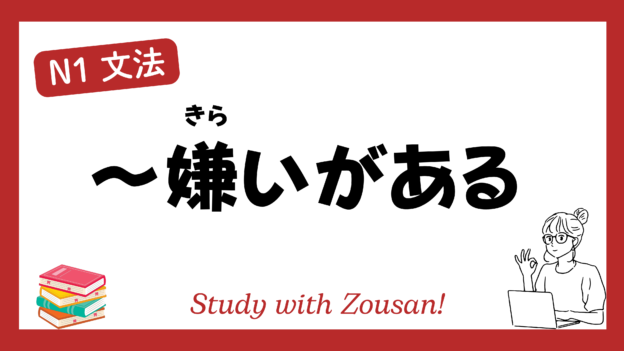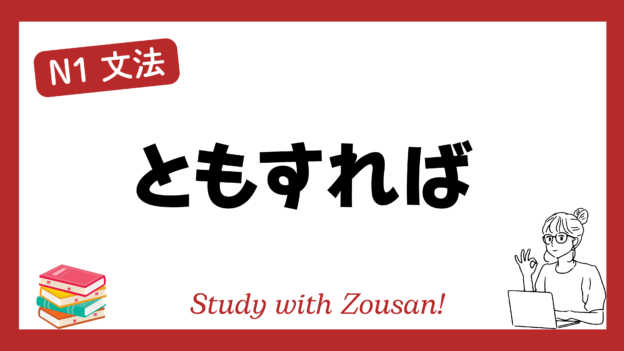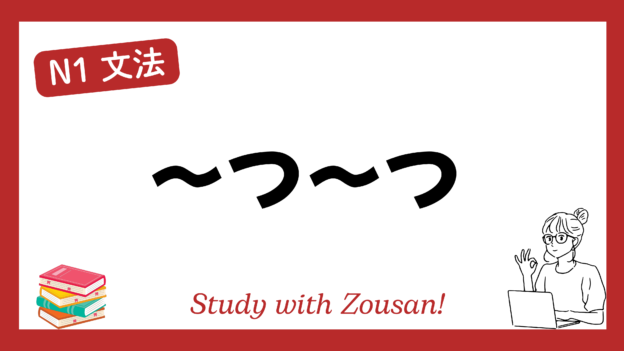N1文法:~嫌いがある
Meaning: “Tends to…”, “Has a tendency to…”
This structure is used to indicate that someone or something has a tendency to do something negative or undesirable. It is often used to point out a bad habit or a negative trait, usually in a mild, critical tone.
※Note: This structure is typically used with a slight tone of criticism to highlight negative tendencies or habits.
Structure:
| Verb (casual form) | + 嫌いがある |
| Noun + の |
Example:
-
-
-
🌟 彼は考えすぎる嫌いがある。
(かれ は かんがえすぎる きらい が ある。)
He has a tendency to overthink things. -
🌟 彼女は他人の意見を無視する嫌いがある。
(かのじょ は たにん の いけん を むし する きらい が ある。)
She has a habit of ignoring other people’s opinions. -
🌟 彼は遅刻する嫌いがある。
(かれ は ちこく する きらい が ある。)
He has a tendency to be late. -
🌟 人は失敗を恐れる嫌いがある。
(ひと は しっぱい を おそれる きらい が ある。)
People tend to fear failure. -
🌟 あの先生は、話が長くなる嫌いがある。
(あの せんせい は、はなし が ながく なる きらい が ある。)
That teacher tends to talk for too long. -
🌟 彼は他人を批判しがちな嫌いがある。
(かれ は たにん を ひはん しがち な きらい が ある。)
He has a tendency to be critical of others. -
🌟 彼女は、自分の意見を押し付ける嫌いがある。
(かのじょ は、じぶん の いけん を おしつける きらい が ある。)
She tends to impose her opinions on others. -
🌟 彼は責任を他人に押し付ける嫌いがある。
(かれ は せきにん を たにん に おしつける きらい が ある。)
He tends to shift responsibility onto others. -
🌟 彼は物事を楽観的に考える嫌いがある。
(かれ は ものごと を らっかんてき に かんがえる きらい が ある。)
He has a tendency to think optimistically about things. -
🌟 彼女は、些細なことで怒りがちになる嫌いがある。
(かのじょ は、ささい な こと で おこりがち に なる きらい が ある。)
She tends to get angry over trivial matters.
-
-









